Food for thoughts

April 5, 2025
Publications
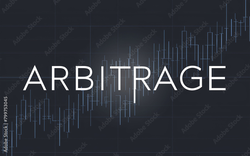
🌐follow Marie-Anne Frison-Roche sur LinkedIn
🌐subscribe to the Newsletter MAFR Regulation, Compliance, Law
🌐subscribe to the Video Newsletter MAFR Surplomb
____
 ► Full Reference: M.-A. Frison-Roche, Arbitration, a highly appropriate technique for deploying Compliance Law, in particular to satisfy the Vigilance Obligation, Working Paper, March 2025.
► Full Reference: M.-A. Frison-Roche, Arbitration, a highly appropriate technique for deploying Compliance Law, in particular to satisfy the Vigilance Obligation, Working Paper, March 2025.
____
🎤 This Working Paper was developed as a basis for the Overhang👁 video on ... April 2025 : click HERE
____
🎬🎬🎬In the collection of the Overhangs👁 It falls into the Notion category.
►Watch the complete collection of the Overhangs👁 : click HERE
____
► Summary of this Working Paper: If Arbitration has so far not developed much in Compliance Law, it is because this new branch of Law is not well known. Indeed, if it were simply a matter of 'conformity' with mandatory regulations, then Arbitration involving rights that are freely available to the parties and Compliance would be 2 worlds that must ignore each other.
But Compliance Law is defined quite differently. Its normativity lies in the Monumental Goals set by the political authorities, which oblige large companies, because these compagnies are in a position to do so, to contribute to achieving these Goals, namely the future preservation of the Systems (banking, digital, climate, energy, etc.) and human beings involved. While the Goal is constrained, the company is free to choose the means, as long as these means are credible. Arbitration is one of them. From the arbitration clause to the appropriate award.
One example is the Duty of Vigilance, the cutting edge of Compliance. In order to effectively find solutions in the value chain that the company governs, Arbitration is a suitable means of achieving the Monumental Goals of environmental protection and human rights, under the control of the Judge.
____
🔓read the developments below⤵️
April 3, 2025
Thesaurus : Doctrine
► Référence complète : M. Trespeuch, "Parents ou clients ? Construire et guider la demande sur le marché transnational de la GPA", in C. Senik (dir.), Enfanter : Natalité, démographie et politiques publiques, La Découverte, pp. 34-54.
____
► Résumé de l'article (fait par le Journal of Regulation & Compliance - JoRC) : L'auteur
________
🦉Cet article est accessible en texte intégral pour les personnes inscrites aux enseignements de la Professeure Marie-Anne Frison-Roche
________

March 29, 2025
Publications

🌐follow Marie-Anne Frison-Roche sur LinkedIn
🌐subscribe to the Newsletter MAFR Regulation, Compliance, Law
🌐subscribe to the Video Newsletter MAFR Surplomb
____
 ► Full Reference: M.-A. Frison-Roche, The Contract, a Compliance tool: the Obligation for a platform to control content CE, 27 January 2025, B. c/ CNIL, Working Paper, March 2025.
► Full Reference: M.-A. Frison-Roche, The Contract, a Compliance tool: the Obligation for a platform to control content CE, 27 January 2025, B. c/ CNIL, Working Paper, March 2025.
____
🎤 This Working Paper was developed as a basis for the Overhang👁 video on 29 March 2025 : click HERE (in French)
____
🎬🎬🎬In the collection of the Overhangs👁 It falls into the News category.
►Watch the complete collection of the Overhangs👁 : click HERE
____
► Summary of this Working Paper: The ruling handed down on 15 January 2025 by the Commercial, Economic and Financial Chamber of the French Judicial Supreme Court (Cour de cassation) provides a solution to the issue of content control in the digital environment. It resolves what appears to be the aporia so often emphasised, and even claimed, namely the impossibility of developing an effective controlling technology.
To do this, the Court disregarded the applicable laws and referred to the electronic payment contract between the bank and the platform, which contained a clause on Vigilance against unlawful content, linked to a termination clause. It held that this clause was fully effective. This solution, so simple and so strong, can make a major contribution to regulating the digital space, if the banks so wish, because what platform can do without reliable electronic payment services?
____
🔓read the developments below⤵️
Updated: March 25, 2025 (Initial publication: Feb. 13, 2025)
Hearings by a Committee or Public organisation
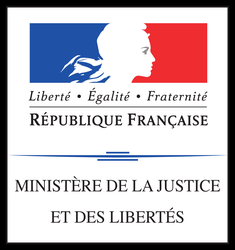
🌐follow Marie-Anne Frison-Roche on LinkedIn
🌐subscribe to the Newsletter MAFR Regulation, Compliance, Law
🌐 subscribe to the Video Newsletter MAFR Overhang/Surplomb
____
► Full Reference: M.-A. Frison-Roche, hearing before the French working group on the modernisation of French Arbitration Law, about the issue Arbitrage et Droit de la Compliance : est-il besoin d'un texte ? ("Arbitration and Compliance Law: is a text required?"), Directorate of Civil Affairs' French Ministry of Justice, 13 February 2025.
____
► Result of this presentation and the ensuing discussion, recorded in the working group's report published in March 2025 (published in French, translated her: "This report on the guiding principles would not be complete without mentioning the discussions in the working group on the introduction of a guiding principle requiring the arbitral tribunal to take into account "human, environmental and compliance issues, as well as respect for the fundamental rights and freedoms of the parties".This proposal gave rise to particularly heated discussions. Some saw it as a scarecrow likely to make French Arbitration Law less attractive and to weaken Arbitration awards, opening up cases of recourse on the pretext of bad faith, even though these values would already be taken into account in the review of domestic or international public policy. Others, on the other hand, felt that such a text would have the advantage of enshrining an Arbitration Law connected to values that are not exclusively economically oriented, pointing out, moreover, that such a principle would not be redundant with the control of public policy, which intervenes ex post, whereas this text imposes Ex Ante responsability, and that this principle would allow a noteworthy introduction of Compliance Law in rbitration. They added that the promotion of such values could make it possible to demonstrate a commitment to virtuous arbitration practice. In the light of these differences, after much hesitation, the decision was made not to include it in the draft Code, considering that the final choice was more a question of political dimension that the working group felt it could not decide on its own. ". (p. 36).
____
► English Summary of the presentation: My presentation deals with the relationship between Compliance Law and Arbitration, particularly International Arbitration. It is built around 12 successive points. The work I have carried out on these various points is associated with it. It precedes the answers I shall give to the questions put by the members of the working group and the ensuing discussion.
1. stagnation in the relationship between Arbitration and Compliance Law, due to continuing misunderstandings about Compliance
2. progress towards a better understanding of Compliance and the appropriateness of the arbitrator's role within Compliance Law
3. prospects for the growing relationship between Compliance Law and Arbitration, particularly with regard to the value chains built up by international companies
4. educational issues
5. time required to build a "culture of place" in this matter
6. "Doctrinal" difficulties
7. benefit from the production of a "doctrine of place" on this subject
8. going beyond the continental summa divisio of Public Law and Private Law
9. practical assimilation of Regulatory Contracts in sustainable sectors and chains
10. opening up the Arbitration World to this articulation with Compliance Law
11. Can an official legal text contribute to this?
12. example of the guiding principles of the French Code of Civil Procedure.
____
🔓read the presentation developments below⤵️
March 25, 2025
Thesaurus : Soft Law
► Référence complète : Fr. Ancel et Th. Clay. (dir.), Rapport sur une réforme du Droit français de l'arbitrage, 2025.
____
____
_________
March 19, 2025
Thesaurus : Doctrine
► Référence complète : M. Porter, Competitive Advantage Creating and Sustaining Superior Performing, Simon & Schuster, 1985.
____

Updated: March 5, 2025 (Initial publication: June 13, 2023)
Publications

🌐follow Marie-Anne Frison-Roche on LinkedIn
🌐subscribe to the Newsletter MAFR Regulation, Compliance, Law
🌐subscribe to the Video Newsletter MAFR Surplomb
____
 ► Full Reference: M.-A. Frison-Roche, The role of will in the Compliance Obligation: Obligation upon Obligation is valid and useful, Working Paper, June 2023.
► Full Reference: M.-A. Frison-Roche, The role of will in the Compliance Obligation: Obligation upon Obligation is valid and useful, Working Paper, June 2023.
____
🎤 This working paper was originally drawn up as a basis for the talk, Obligation on Obligation is worth, on the first day of the conference I co-organised:🧮Compliance : Obligation, devoir, pouvoir, culture (Compliance: Obligation, duty, power, culture), on 13 June 2023.
____
It was subsequently used as the basis for a forthcoming article:
📝La part de la volonté dans l’obligation de compliance : Obligation sur Obligation vaut".
in📕L'obligation de compliance, in the collection 📚Régulations & Compliance
📝The role of will in the Compliance Obligation: Obligation upon Obligation is valid and useful,
in📘Compliance Obligation, in the collection 📚Compliance & Regulation
____
► Summary of this Working Paper: The demonstration of the part played by the entreprises' Will in the Compliance Obligation incumbent on them is carried out in 3 stages.
The first stage of the demonstration consists in finding the part played by the free will of companies in their Compliance Obligation by putting an end to two confusions: the first which, within the Law of Contract and Tort itself but also within Compliance Law, splits and confuses "free will" and "consent", which would no longer require freely expressed acceptance; the second, specific to Compliance Law, which confuses "Compliance" and "conformity", reducing the former to mechanical obedience which could exclude any free Will.
Having clarified this, the rest of the study focuses on the 2 ways in which a company subject to a Compliance Obligation by compulsory regulations expresses a part of its free Will, which the study expresses in this proposed adage: Obligation upon Obligation is valid, since the legal obligation to which the company responds by the obedience owed by all those subject to the regulations may be superimposed by its free Will, which will then oblige it.
The first case of Obligation upon Obligation, studied in a second part, concerns the means by which the compulsory Compliance Obligation is implemented, the company subject to the Monumental Goals set by the Legislator remaining free to choose the means by which the company will contribute to achieving them. Its free Will will thus be exercised over the choice and implementation of the means. This can take two legal forms: Contracts on the one hand and "Commitments" on the other.
In the third part, the second case of Obligation upon Obligation, which is more radical, is that in which, in addition to Compliance's legal compulsory Obligation, the company draws on its free Will to repeat the terms of its legal Obligation (because it is prohibited from contradicting it), a repetition which can be far-reaching, because the legal nature (and therefore the legal regime) is changed. The judgment handed down by the The Hague Court of Appeal on 12 November 2024, in the so-called Shell case, illustrates this. What is more, the company's free Will can play its part in the Compliance Obligation by increasing the legal Obligation. This is where the alliance is strongest. The interpretation of the specific and diverses obligations that result must remain that of the Monumental Goals in a teleological application that gives coherence to the whole.
____
🔓read the developments below⤵️
Feb. 26, 2025
Thesaurus : Doctrine
► Référence complète : L. Gamet, "Théorie et pratique du droit du travail", Etude, Droit social, 2025.
____
🦉Cet article est accessible en texte intégral pour les personnes inscrites aux enseignements de la Professeure Marie-Anne Frison-Roche
________

Updated: Feb. 25, 2025 (Initial publication: Dec. 2, 2023)
Publications

🌐follow Marie-Anne Frison-Roche sur LinkedIn
🌐subscribe to the Newsletter MAFR Regulation, Compliance, Law
🌐subscribe to the Video Newsletter MAFR Surplomb
____
 ► Full Reference : M.-A. Frison-Roche, Compliance, Vigilance and Civil Liability: put in order and keep the sense of Reason, Working Paper, June 2024
► Full Reference : M.-A. Frison-Roche, Compliance, Vigilance and Civil Liability: put in order and keep the sense of Reason, Working Paper, June 2024
____
📝 In its French version, this Working Paper is the basis of the contribution "Compliance, Vigilance et Responsabilité civile : mettre en l'ordre et raison garder", in 📕L'Obligation de Compliance
____
► Summary of this Working Paper: The descriptions of the Liability incurred by large companies as a result of their compliance obligations are very diverse, even contradictory, going beyond the wishes that may be expressed as to what this liability should be. The first part of this study therefore sets out the various liabilities incurred by companies, which differ in the conditions under which they are implemented and in their scope, so as not to confuse them.
Indeed, as the various laws establish specific legal compliance obligations, they give rise to liabilities of varying conditions and scope, and it is not possible to avail of the regime of one in a situation that falls within the scope of another. It is therefore necessary to review the various bodies of compliance legislation, the GDPR, the ALM-FT regulations, the French so-called Sapin 2 law, the French so-called Vigilance law , the European IA Act , the European European DGA Act, etc., to recall the inflexion that each of these bodies of legislation has made to the liability rules applied to the companies subject to them. Nevertheless, the unicity of the Compliance Obligation, overcoming this necessary diversity of situations, regulations and liability regimes, can provide grouping lines to indicate beyond this diversity the extent of the liability incurred by companies.
Once this classification has been made, the second part of the study develops the observation that none of this can create any principle of general liability on large companies in terms of compliance, and in particular not in terms of vigilance. It is not possible to deduce a general principle of specific obligations of liability or specific obligations to reparation, for example in the area of vigilance, as the texts creating specific vigilance obligation refer to the conditions of commun Tort Law (proof damage and causality), and International Public Law does not have the force to generate a general principle binding companies in this respect.
The third part stresses that it is nevertheless always possible to invoke Tort Law, and companies cannot claim to escape this. This may involve contractual liability, a situation becoming increasingly frequent as companies contractualise their legal compliance obligations, reproducing them but also modifying them, and as Vigilance duty is an obligation that goes beyond the specific situations covered by the regulations.
But it is essential, and this is the subject of the fourth part, not to make companies pure and simple guarantors of the state of the world, present and future. Indeed, if we were to transform sectoral compliances into illustrations of what would then be a new general principle, but one that applied only to them, they would consequently exercise the other side of this coin, namely power over others.
____
🔓read the Working Paper below⤵️
Feb. 21, 2025
Conferences
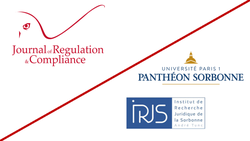
🌐suivre Marie-Anne Frison-Roche sur LinkedIn
🌐s'abonner à la Newsletter MAFR Regulation, Compliance, Law
🌐s'abonner à la Newsletter en vidéo MAFR Surplomb
____
 ► Full Reference: M.-A. Frison-Roche, La qualification juridique du système de noms de domaine comme infrastructure et ses conséquences juridiques ("The legal status of the domain name system as an infrastructure and its legal consequence"), in M.-A. Frison-Roche et G. Loiseau (dir.), Durabilité de l'Internet : le rôle des opérateurs du système des noms de domaine (Sustainability of the Internet: the role of the operators of the domain name system. Compliance and regulation of the digital space). Compliance et régulation de l'espace numérique, 21 février 2025, organisé par le Journal of Regulation & Compliance et l'Institut de la Recherche en Droit de la Sorbonne (André Tunc - IRDJS), 12 place du Panthéon, Paris.
► Full Reference: M.-A. Frison-Roche, La qualification juridique du système de noms de domaine comme infrastructure et ses conséquences juridiques ("The legal status of the domain name system as an infrastructure and its legal consequence"), in M.-A. Frison-Roche et G. Loiseau (dir.), Durabilité de l'Internet : le rôle des opérateurs du système des noms de domaine (Sustainability of the Internet: the role of the operators of the domain name system. Compliance and regulation of the digital space). Compliance et régulation de l'espace numérique, 21 février 2025, organisé par le Journal of Regulation & Compliance et l'Institut de la Recherche en Droit de la Sorbonne (André Tunc - IRDJS), 12 place du Panthéon, Paris.
____
🧮see the full programme of this colloquium (in French)
____
► Summary of this conference: "Domain names" are a technical reality. This technical reality has come to the fore, seeming to have been both little "thought out" and little "conceived" in Law and, perhaps because it is little coveted, Competition Law, which neutralises the concreteness of things and services in order to focus on exchange, hardly qualifies them. It is rather from the 'Competition Policy' perspective that 'domain names' are apprehended. However, Competition Policy expresses wishes and perspectives, while Competition aw must make way for the perspective of Regulatory Law inside the liberal economic system.
Looking at the technicalities of the domain name system, we can proceed in 3 stages.
Firstly, if a domain name is taken in isolation, it may appear as property and/or a projection of a person, and has rightly been described as such by the courts. But domain names only exist in relation to each other, the addressing system on which the Internet itself and the digital space that enables everyone to spread, reach and be reached were built. In this way, they constitute an Infrastructure in their plurality, in a uniqueness (I). The legal system must take account of this technological reality through the concept of Essential Infrastructure, which is well known in Regulatory legal perspective(I).
Secondly, the legal consequences of this legal qualification of Infrastructure must be detailed (II). Regulatory Law does not necessarily imply institutions, a regulatory authority being an indication rather than a criterion. Rather, it requires specific charges, powers and controls to ensure that the Infrastructure is established and operates to fulfill, now and in the future, the function that is crucially expected of it. Because the digital space was born of the Internet, an a-sectional and a-territorial space, Compliance Law, which is an extension of Regulatory Law, outside the sectors and internalised in the crucial operators, is essential as it is appropriate without diminishing the public dimension of the organisation.
Thirdly, the evidential dimension should be emphasised (III). Indeed, because we need to ensure that the Domain Names Infrastructure is always solid and reliable, so as not to risk a systemic failure of the Internet, and therefore of the digital space, we must not remain with the traditional system of burden of proof that rests on the person making the complaint. Because there is a Compliance Obligation, it is up to the crucial operators to credibly show their ability to ensure the technical sustainability of this infrastructure on which the digital space in which we live is based.
It shall be different if the issue is one of non-technical Sustainability, for example that which is linked to a particular societal project, in which the operators of the domain name system are not at the origin and are required on an ad hoc basis because they are in a good position to help the Authorities or because they wish to do so.
_____
Feb. 21, 2025
Conferences

🌐suivre Marie-Anne Frison-Roche sur LinkedIn
🌐s'abonner à la Newsletter MAFR Regulation, Compliance, Law
🌐s'abonner à la Newsletter en vidéo MAFR Surplomb
____
 ► Full Reference: M.-A. Frison-Roche, "La clé de la proportionnalité pour établir l’équilibre des obligations, pouvoirs et droits - Exemple de l’inclusion technique assurée par les opérateurs des noms de domaine" (The key to proportionality in balancing obligations, powers and rights - Example of technical inclusion by domain name operators), in M.-A. Frison-Roche et G. Loiseau (dir.), Durabilité de l'Internet : le rôle des opérateurs du système des noms de domaine (Sustainability of the Internet: the role of the operators of the domain name system. Compliance and regulation of the digital space). Compliance et régulation de l'espace numérique, 21 février 2025, organisé par le Journal of Regulation & Compliance et l'Institut de la Recherche en Droit de la Sorbonne (André Tunc - IRDJS), 12 place du Panthéon, Paris.
► Full Reference: M.-A. Frison-Roche, "La clé de la proportionnalité pour établir l’équilibre des obligations, pouvoirs et droits - Exemple de l’inclusion technique assurée par les opérateurs des noms de domaine" (The key to proportionality in balancing obligations, powers and rights - Example of technical inclusion by domain name operators), in M.-A. Frison-Roche et G. Loiseau (dir.), Durabilité de l'Internet : le rôle des opérateurs du système des noms de domaine (Sustainability of the Internet: the role of the operators of the domain name system. Compliance and regulation of the digital space). Compliance et régulation de l'espace numérique, 21 février 2025, organisé par le Journal of Regulation & Compliance et l'Institut de la Recherche en Droit de la Sorbonne (André Tunc - IRDJS), 12 place du Panthéon, Paris.
____
🧮see the full programme of this colloquium (in French)
____
► Summary of this conference: The domain name operators operate in a liberal system and have internalised the tasks being technically inherent in the very architecture of the Internet, while the Public Authorities, because they recognise this nature, ensure in Ex Ante that there are no global failures.
This translates into a system of obligations. All the more so since domain name operators not only bear multiple obligations but also, by order of the laws and regulations, impose them on others, for example on their co-contractors and users.
It is from this perspective that the Principle of Proportionality, which is central here, must be considered. It is another expression of the legal Principle of Necessity, which must be conceived in terms of goals: what is proportionate is what is necessary to achieve the objective with regard to which the duties and prerogatives are entrusted and/or exercised. This is why it is first necessary to recall and explain what the Principle of Proportionality is with regard to the operators obligations covered by Compliance Law, which goes beyond jurisdictional powers such as sanctions or dispute resolution, to explain the teleological control of obligations and powers (I).
From this practical framework, the most relevant example is the technical obligation of inclusion (II) In the technical sense, Inclusion means that anyone who wants to enter the digital space must be able to do so and must be able to reach those who are there and be reached by others. This gives everyone the right to reach and be reached.
Is it possible to go further and ask for comfort for everyone and equality in this comfort and advantages to rebalance this accessibility? For instance, to know everything about everyone beyond this simple digital adresse? To ask domains names operators to help everyone to develop his/her personality in the digital space, compensating his/her lack of initial chance? This is social and political inclusion. It is not the same thing. It does not have the same sources. It does not follow the same paths. Not the same forces. The Sustainability that is then projected can be cumulative. A distinction has to be made on the one hand, and a link made on the other. Moreover, in the name of mistreated social inclusion, can we mistreat technical inclusion, i.e. exclude a person from the digital space? (III).
________

Feb. 21, 2025
Organization of scientific events

🌐follow Marie-Anne Frison-Roche on LinkedIn
🌐subscribe to the Newsletter MAFR. Regulation, Compliance, Law
🌐subscribe to the Newsletter Surplomb, par MAFR
____
► Full Reference: M.-A. Frison-Roche & G. Loiseau (dir.), Durabilité de l'Internet : le rôle des opérateurs du système des noms de domaine. Compliance et régulation de l'espace numérique (Sustainability of the Internet: the role of the operators of the domain name system. Compliance and regulation of the digital space), Journal of Regulation & Compliance (JoRC) and Institut de Recherche Juridique de la Sorbonne (André Tunc - IRJS), Paris 1 Panthéon-Sorbonne University, 21 Fabruary 2025
____
► General presentation of this symposium: The digital space has been built on and as a system. Its primary interest is of a negative nature: it consists of to be preserved against the prospect of systemic failure, of not collapsing. Like all other systems, this 'Monumental Goal' specific to the digital system justifies resources that incorporate this concern for the future. As with all systems, it integrates and relies on the specific technical nature of this system.
The digital space is largely based on the invention, technology and architecture of domain names. Domain names, as an addressing system, enable users to enter the digital space and find other Internet users. The uniqueness and solidity of the domain name system, entrusted to a single root and decentralisation, makes this community possible for those who use the digital space and ensures the technical durability required, without which the digital space would be compromised.
The architecture, operation, operators and what they do under the control of legislators, regulators, judges and legal subjects are therefore examined from a dual technical and legal perspective, in the light of the imperative of sustainability.
This allows to progress in 4 stages.
Firstly, to examine the permanence in time and space of the domain name system, insofar as it is the foundation of the Internet and the digital system. This technical construction gives rise to legal qualifications, not only for the present but also for the future, since the Web3 offers new technical solutions.
Secondly, this technical sustainability is an imperative that is built into the operators of the domain names themselves, which are inter-linked not only at national level but also at global level, this cross-linking being necessary for the security of the system. The State is present through public law techniques that enable surveillance, control and possible recovery.
Thirdly, it imposes constraints on the operators subject to them in order to serve this monumental goal of technical sustainability, and these constraints themselves generate as many powers as they need to usefully achieve this mission. This proportionality must be at the heart of the method and the requirements. The relationship between constraints and powers also stems from it.
Fourthly, this imperative of technical sustainability, which is global in nature, gives way to imperatives of societal sustainability, more localised in space and time, when domain name operators are called upon by the legitimate authors of binding standards, legislators in the first instance, to express concerns such as the protection of people involved in the digital space and whose rights are compromised or who are in danger.
This second type of sustainability, which is more localised and less inherent in the architecture of the Internet, is justified by the available power of the operators concerned and their adherence to social imperatives. The resulting constraints and powers are therefore not the same.
The 2 sustainabilities must then be articulated in a conception that is both teleological and pragmatic.
____
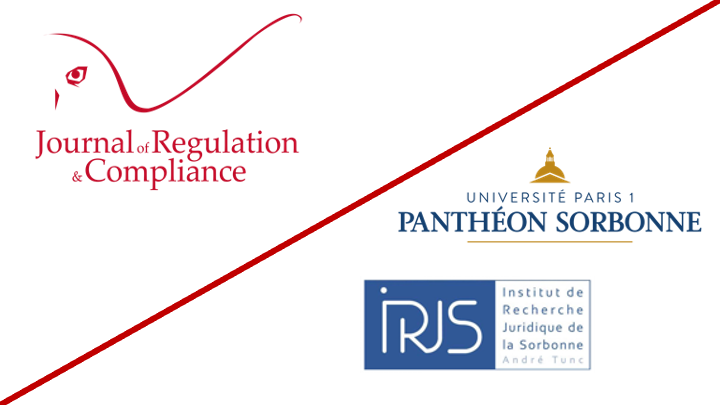
____
► Speakers (they will speak in French, but the book to be published will be in English):
🎤Pierre Bonis, Chief Executive Officer of the Association française pour le nommage Internet en coopération (Afnic)
🎤Lucien Castex, Adviser of the Afnic Chief Executive Officer for Research internet and society and Internet governance
🎤Marie-Anne Frison-Roche, Full Professor of Regulatory and Compliance Law, Director of the Journal of Regulation & Compliance (JoRC)
🎤Claire Leveneur, Senior Lecturer at Paris-Est Créteil University
🎤Grégoire Loiseau, Full Professor at Paris 1 Panthéon-Sorbonne University
🎤Samir Merabet, Full Professor at the University of West Indies
🎤Antoine Oumedjkane, Senior Lecturer at Lille University
🎤Frédéric Sardain, attorney at law, Jeantet law firm
____
read below a detailed presentation of this event⤵️
Feb. 12, 2025
Thesaurus : 02. Cour de cassation

► Référence complète : Com., 12 février 2025, n°23-20.079, M c/ société MDC
____
____
Description de l'arrêt.
Les statuts d'une SAS comprennent une clause d'exclusion d'associé, stipulation qui prévoit une notification préalable au moins 30 jours avant, donnant les motifs et la date de la réunion pour que l'associé puisse faire valoir ses arguments en défense.
En juin 2018, l'associé est convoqué, les motifs communiqués étant le fait qu'il travaillerait en même pour une entreprise concurrence, à une réunion préalable à laquelle il se ne rend pas.
A l'AG de la semaine suivante, l'associé est exclu.
Il attaque en nullité la délibération
Puis en 2019, la société est mise en redressement judiciaire puis liquidée, le litige se poursuivant donc entre l'associé et le liquidateur.
La Cour d' appel de Rouen donne satisfaction à l'associé en estimant que la notification adressée ne mentionnait que le fait de travailler depuis plusieurs années pour une entreprise concurrente ce qui est contraire aux obligations de l'associé, sans préciser ni l'identité de l'entreprise ni l'activité en question ne satisfaisait pas à la stipulation statutaire d'exclusion.
La Chambre commerciale prononce une cassation sur le fondement de l'article 1134 du Code civil selon lequel les conventions tiennent lieu de loi à ceux qui les ont faites. Elle relève en effet que la clause statutaire exige la notification des motifs mais pas de telles précisions.
____

Feb. 8, 2025
MAFR TV : MAFR TV - Overhang

🌐suivre Marie-Anne Frison-Roche sur LinkedIn
🌐s'abonner à la Newsletter MAFR. Regulation, Compliance, Law
🌐s'abonner à la Newsletter Surplomb, par MAFR
____
► Référence complète : M.-A. Frison-Roche, "Qui est en charge de rendre effectif le dispositif de Compliance ? Plutôt l'entreprise ou plutôt l'Autorité publique ? Exemple des données : CE, 27 janvier 2025, B. c/ CNIL", in série de vidéos Surplomb, 8 févroer 2025
____
🌐visionner sur LinkedIn cette vidéo de la série Surplomb
____
____
🚧lire le document de travail bilingue sur la base duquel cette vidéo a été élaborée
____
► Résumé de ce Surplomb : Dans sa décision du 27 janvier 2025, le Conseil d'État eut à apporter une solution à un cas que les règles de Compliance applicable en matière de données n'avaient pas expressément prévu. Une personne qui estime qu'une autre a méconnu ses obligations imposées par le RGPD peut-elle saisir la CNIL et non pas le responsable de traitement ?
Le Conseil d'Etat estime que la question est claire, qu'il n'est pas utile de poser une question préjudicielle à la CJUE. En effet, les textes imposent à celui qui allègue la méconnaissance de son droit de se tourner d'abord vers le responsable du traitement pour que l'information soit effacée avant de saisir dans un second temps la CNIL. En outre, il s'agissait en l'espèce d'informations personnelles insérées par des médecins dans un rapport d'expertise versé dans une instance judiciaire. Le Conseil d'Etat approuve la CNIL d'avoir estimé qu'elle n'a pas à contrôler et à apprécier les éléments de preuve, ce qui relève de l'office du juge judiciaire.
L'on mesure ici que, si par ailleurs sur la base du droit d'alerte la saisine d'autorités administratives peut être directe, ici le spécifique l'emporte sur le général, l'esprit de la loi confiant la préservation directe des droits au responsable du traitement, la CNIL ne devant venir dans son office de supervision et de hashtag#sanction que dans un second stade. Cela illustre ce qu'est le Droit de la Compliance d'une façon plus générale, qui repose en premier lieu sur les opérateurs eux-mêmes. En outre, creuset de droits subjectifs divers, ici droit à l'hashtag#effacement mais aussi droit de verser des preuves aux débats, le Conseil d'Etat souligne que c'est ici l'office du juge judiciaire de veiller à la loyauté des débats.
____
🎬visionner ci-dessous cette vidéo de la série Surplomb⤵️
____
Surplomb, par mafr
la série de vidéos dédiée à la Régulation, la Compliance et la Vigilance
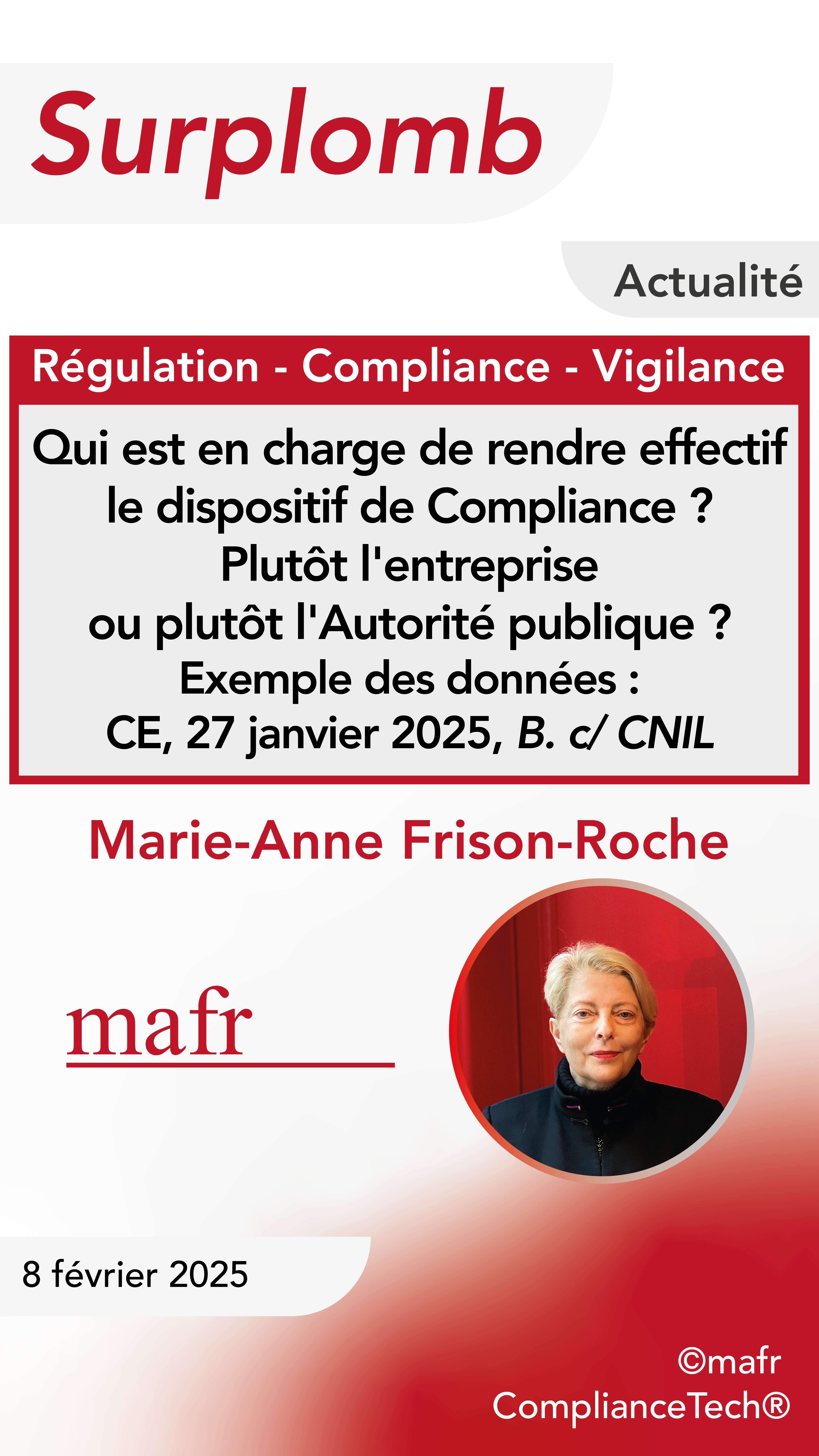

Feb. 7, 2025
Conferences
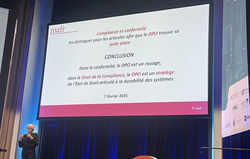
🌐suivre Marie-Anne Frison-Roche sur LinkedIn
🌐s'abonner à la Newsletter MAFR Regulation, Compliance, Law
🌐s'abonner à la Newsletter en vidéo MAFR Surplomb/Overhang
____
► Full Reference: M.-A. Frison-Roche, "Compliance" et "conformité" : les distinguer/mieux les articuler afin que le DPO trouve sa juste place" ("Compliance Law" and "conformity" : distinguish between them/better articulate them so that the DPO finds their rightful place"), , in Association française des correspondants à la protection des données à caractère personnel (AFCDP), 19ème Université AFCDP des DPO - La gouvernance des données ("Data Governance"), Maison de la Chimie, Paris, 7 February 2025 , 10h-10h45.
____
🧮 see this manifestation full program (in French)
____
⬜ see les slides on which this conference is done (in French)
____
► English Presentation of this conference: 'Compliance' and 'conformité' are often considered to be synonymous, notably in French in which the term "Compliance" is so often used to express only the "conformity" (conformité). This is a misunderstanding and a reduction, particularly of the role of professionals, notably DPOs. In fact, 'conformity' consists solely of ensuring that regulations are respected. Of course, an"active" conformity and "proven" conformity with these regulations, in particular the European GDPR. That and only that.
If that's the case, then on the one hand this task impossible, because no one can comply with all the regulations, and it's the obsession with avoiding or reducing penalties that actually replaces the desire to do the right thing. On the other hand, algorithms are going to replace the DPO, a human being, because algorithms will identify 'non-conformity', then conformity, then write it down by "smart" contracts.
But Compliance Law is more than conformity, which is only one of its tools. Compliance Law aim is to protect the human beings involved in the systems. Data protection is one of the best examples of this, and it underpins all the other areas of Compliance Law. Companies are asked to do less (obligation of means) and more: to help protect, by distinguishing between what must be revealed and what must be kept secret, sometimes to resolve conflicts between the 2 prescriptions, to educate, to make alliances.
To built a real "governance". In this human and humanist mission that anchors Europe, the algorithm is flat. We are waiting for the DPO. In this human and humanist mission that anchors Europe, the algorithm is flat. We are waiting for the DPO. There is the role of guardian of the spirit of the texts, of strategic aid for the data controller, of adjuster of complementary or contradictory subjective rights, of adjustment of the texts in the European puzzle of a Regulatory Europe, which is being put in place in the humanist tradition which is its own to preserve the durability of the systems to protect the people who are forcibly or voluntarily involved in them.
________
Feb. 5, 2025
Thesaurus : Soft Law
► Référence complète : Défenseur des droits, Décision-cadre n°2025-019 de la Défenseure des droits relative à des recommandations générales destinées aux employeurs publics et privés concernant les enquêtes internes réalisées à la suite de signalement pour discrimination, 5 février 2025.
____

Feb. 5, 2025
Publications

🌐follow Marie-Anne Frison-Roche sur LinkedIn
🌐subscribe to the Newsletter MAFR Regulation, Compliance, Law
🌐subscribe to the Video Newsletter MAFR Surplomb
____
 ► Full Reference: M.-A. Frison-Roche, Who is responsible for making the Compliance provision effective? Is it the company or the public authority? Example of data: CE, 27 January 2025, B. c/ CNIL, Working Paper, February 2025.
► Full Reference: M.-A. Frison-Roche, Who is responsible for making the Compliance provision effective? Is it the company or the public authority? Example of data: CE, 27 January 2025, B. c/ CNIL, Working Paper, February 2025.
____
🎤 This Working Paper was developed as a basis for the Overhang👁 video on 8 February 2025 : click HERE (in French)
____
🎬🎬🎬In the collection of the Overhangs👁 It falls into the News category.
►Watch the complete collection of the Overhangs👁 : click HERE
____
► Summary of this Working Paper: In its decision of 27 January 2025, B. v CNIL, the French Administrative Supreme Court (Conseil d'État ) had to provide a solution to a case that the Compliance rules applicable to data had not expressly provided for. Can a person who believes that another person has failed to fulfill their obligations under the GDPR refer the matter to the French Data Protection Regulator (CNIL) and not the data controller?
The Conseil d'État considers that the question is clear and that there is no point in referring a preliminary question to the ECJ. Indeed, the texts require the person alleging that his or her right has been infringed to first contact the data controller to have the information deleted before subsequently referring the matter to the CNIL. Furthermore, this case involved personal information inserted by doctors in an expert report submitted to a court. The Conseil d'Etat agreed with the CNIL that it was not required to review and assess the evidence, which is the role of the court.
This shows that, while the right to alert can be used to refer cases directly to the administrative authorities, here the specific takes precedence over the general, with the spirit of the Law entrusting the direct preservation of rights to the data controller, with the CNIL's supervisory and sanctioning role coming only at a later stage. This illustrates the more general nature of Compliance Law, which relies primarily on the operators themselves. Furthermore, as a melting pot of various subjective rights, in this case the right to erasure but also the right to contribute to the debates, the Conseil d'Etat stresses that it is the role of the judicial judge to ensure the fairness of the debates.
____
🔓read the developments below⤵️

Feb. 1, 2025
MAFR TV : MAFR TV - Overhang

🌐follow Marie-Anne Frison-Roche on LinkedIn
🌐subscribe to the Newsletter MAFR. Regulation, Compliance, Law
🌐subscribe to the Video Newsletter MAFR. Overhang / Surplomb
____
► Full Reference: M.-A. Frison-Roche, "Monumental Goals, normative anchoring of Compliance Law", in Series of videos Overhang / Surplomb, 1st February 2025
____
🌐watch on LinkedIn this video of the Series Surplomb/Overhang
____
____
🎬watch below this video of the Serie Surplomb/Overhang⤵️
____
Surplomb/Overhang, by mafr
the Serie of videos dedicated to Regulation, Compliance and Vigilance
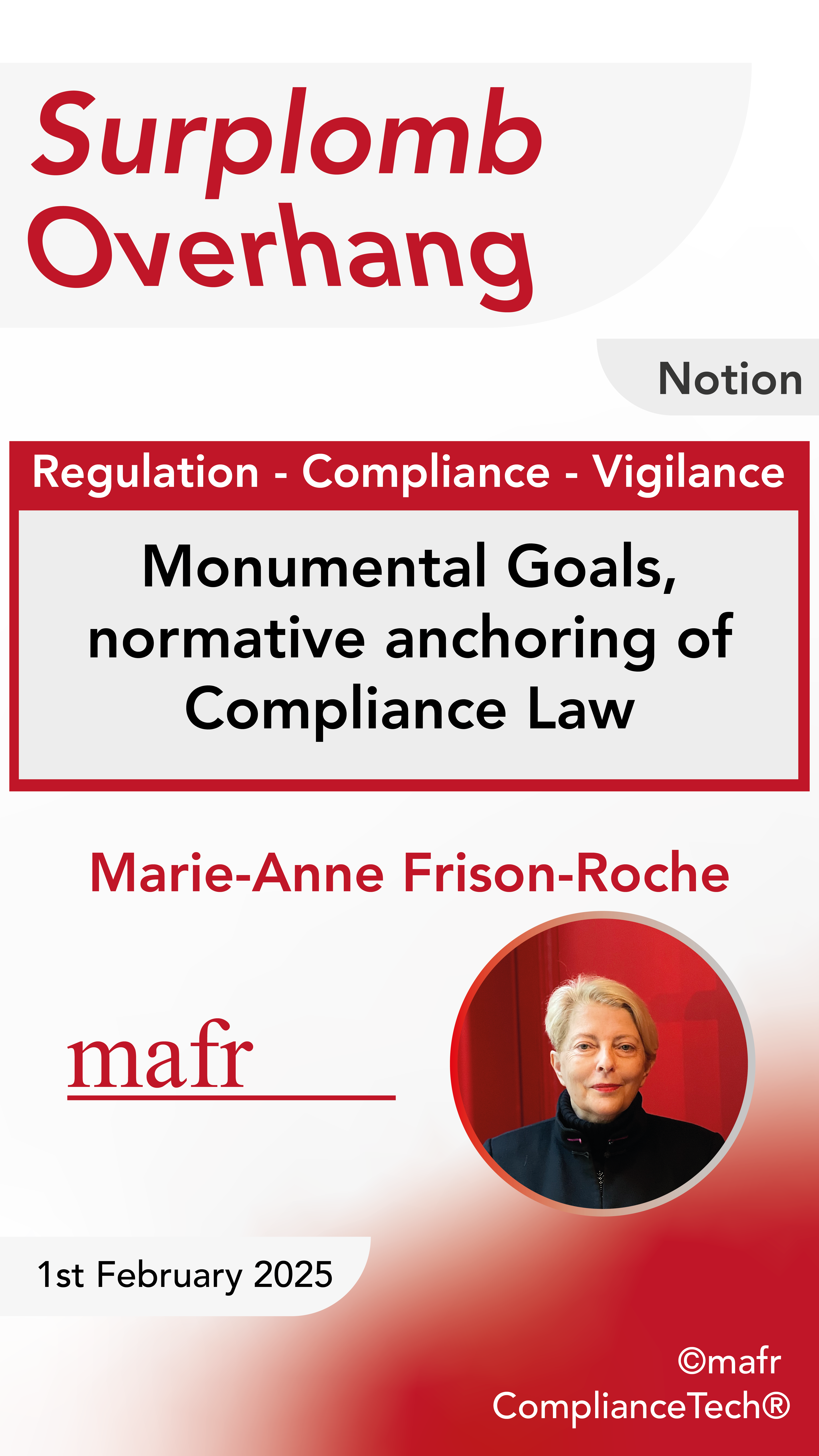
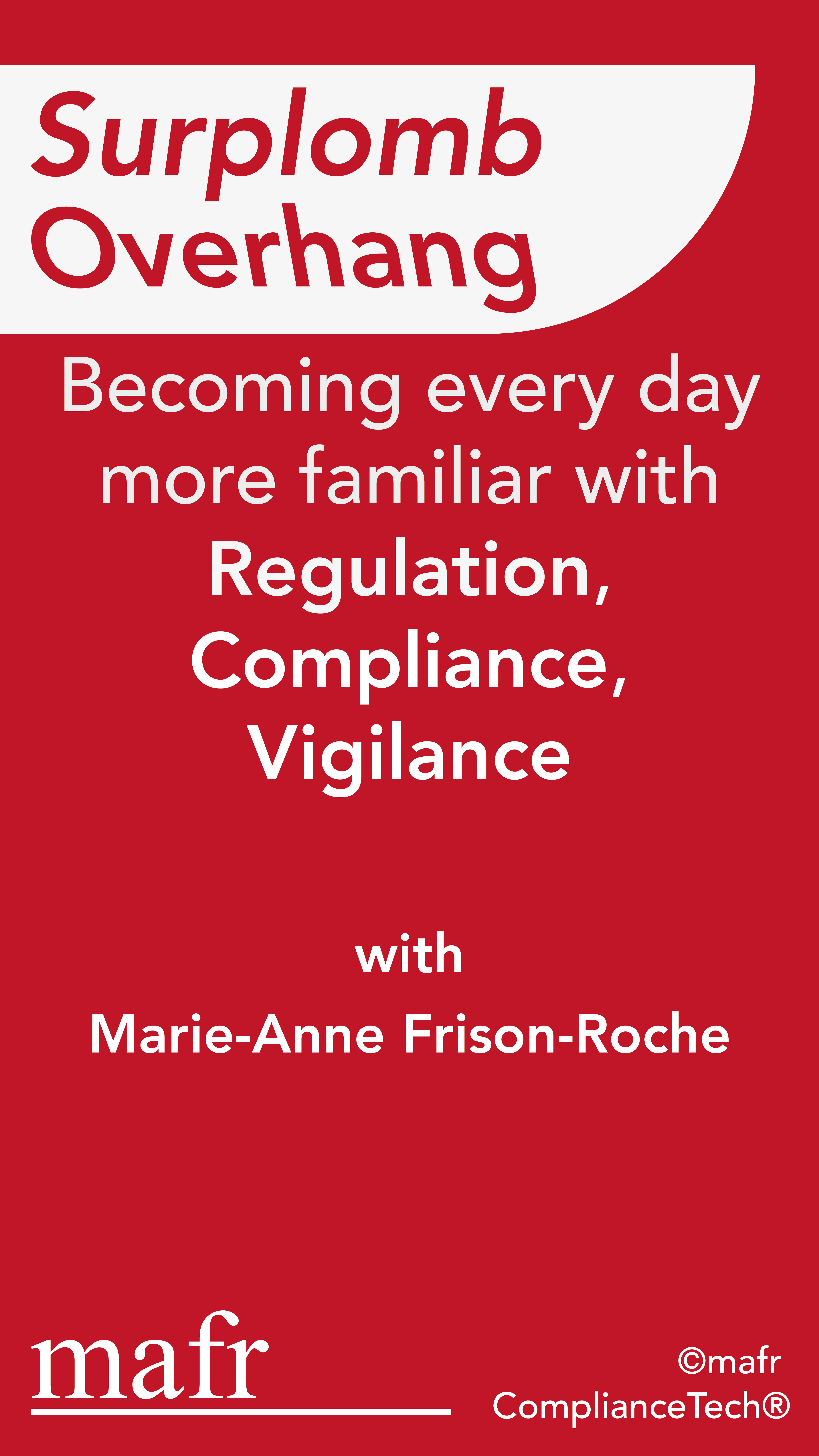

Jan. 25, 2025
MAFR TV : MAFR TV - Overhang

🌐suivre Marie-Anne Frison-Roche sur LinkedIn
🌐s'abonner à la Newsletter MAFR. Regulation, Compliance, Law
🌐s'abonner à la Newsletter Surplomb, par MAFR
____
► Référence complète : M.-A. Frison-Roche, "La CJIP et le temps gagné : la CJIP Areva/Orano du 2 décembre 2024", in série de vidéos Surplomb, 25 janvier 2025
____
🌐visionner sur LinkedIn cette vidéo de la série Surplomb
____
____
🎬visionner ci-dessous cette vidéo de la série Surplomb⤵️
____
Surplomb, par mafr
la série de vidéos dédiée à la Régulation, la Compliance et la Vigilance
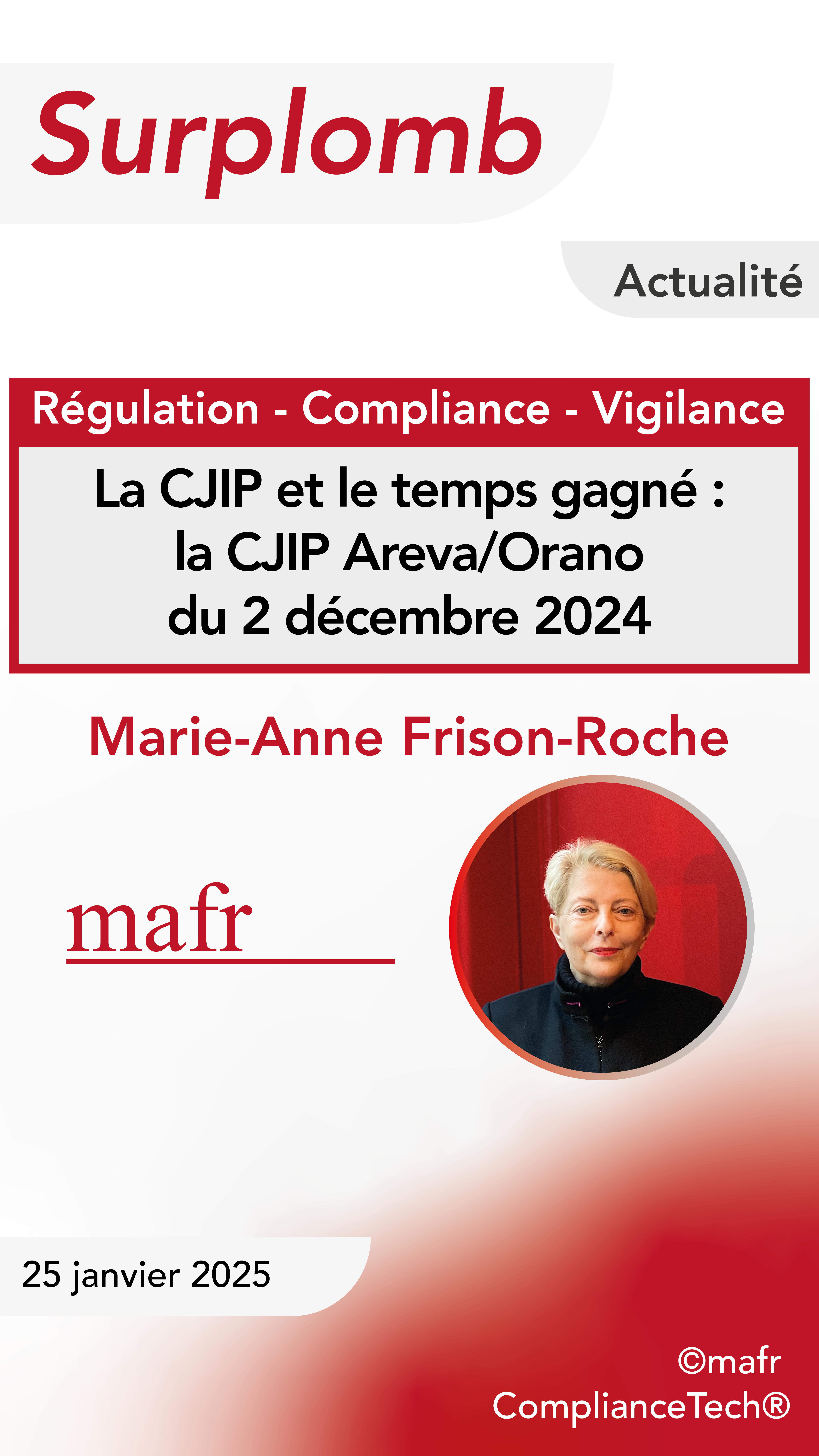


Jan. 25, 2025
Publications

🌐follow Marie-Anne Frison-Roche sur LinkedIn
🌐subscribe to the Newsletter MAFR Regulation, Compliance, Law
🌐subscribe to the Video Newsletter MAFR Surplomb
____
 ► Full Reference: M.-A. Frison-Roche, The French Judicial Public Interest Agreement and the time saved: the Areva and Orano CJIP of 2 December 2024, Working Paper, January 2025.
► Full Reference: M.-A. Frison-Roche, The French Judicial Public Interest Agreement and the time saved: the Areva and Orano CJIP of 2 December 2024, Working Paper, January 2025.
____
🎤 This Working Paper was developed as a basis for the Overhang👁 video on 25 January 2025 : click HERE (in French)
____
🎬🎬🎬In the collection of the Overhangs👁 It falls into the News category.
►Watch the complete collection of the Overhangs👁 : click HERE
____
► Summary of this Working Paper: On 2 December 2024, Areva/Orano signed a Public Interest Judicial Agreement (CJIP) with the French National Financial Prosecutor's Office, validated by the order of 9 December 2024 of the President of the Paris Judicial Court. The case concerns the bribery of a foreign public official in Mongolia through the use of an intermediary.
This perfectly illustrates the primary advantage of this Compliance Tool, which consists of closing a situation that could deprive a company of the means to act in the future. Even if neither the CJIP nor the validation order constitutes an admission of guilt or a conviction, the acts of bribery of a foreign public official can no longer give rise to prosecution.
However, the future has been taken care of, because as soon as Tracfin passed the first information to the Public Prosecutor's Office, the company cooperated and set up a programme to actively fight corruption ("compliance programme"). The CJIP extends this by a compliance programme supervised by the French Anticorruption Agency.
One month after the CJIP, the Mongolian government and the company, in the presence of the French government, announced on 17 January 2025 the signing of a contract to operate a uranium mine, the same industrial coopération that had given rise to these reprehensible acts. The CJIP made it possible to move forward in time.
____
🔓read the developments below⤵️
Jan. 23, 2025
Interviews

🌐suivre Marie-Anne Frison-Roche sur LinkedIn
🌐s'abonner à la Newsletter MAFR Regulation, Compliance, Law
🌐s'abonner à la Newsletter en vidéo MAFR Surplomb
____
► Full Reference: M.-A. Frison-Roche, « La compliance est avant tout une affaire humaine» (Compliance is first and foremost a human issue), interview conducted by Olivia Dufour for Actu-juridique, Lextenso, 23 January 2025.
___
► read the interview: 💬in French)
____
🏛️🏛️🏛️🏛️this interview was organised following a number of official opening hearings of Parisian courts, in particular that of the Paris Judicial Court on 21 January 2025, at which the presidents of these courts explained the role now played by systemic litigation and compliance and/or vigilance law, in particular in the internal organisation of their courts.
____
► presentation of this interview:
Q. (translated): At the start of the new session of the official opening hearings of Paris Court of First Instance on 21 January, President Stéphane Noël spoke at length about the creation of a 34th chamber dedicated to handling cases relating to companies' obligation of vigilance. What are the advantages of this new specialisation?
MAFR Answer Summary: It corresponds to the jurisdiction given to the Paris Court of First Instance by the French 2020 so-called Confidence Act, which extends the French 2017 so-called Vigilance Act. It reflects the importance of Compliance Law, of which Vigilance is the leading edge.
Q. (translated): The court president points out that this new litigation raises questions about the role of the courts, which is to "concilier le respect des buts fondamentaux pour la protection de l’humanité avec la possibilité pour les entreprises d’apprécier la maitrise des risques et leur éventuelle responsabilité" ("reconcile respect for the monumental goals of protecting humanity with the ability of companies to assess the control of risks and their potential liability"). What do you think?
MAFR Answer Summary: the role of the judge has been renewed, as they take charge of the future of the systems and participates in the achievement of the Monumental Goals of Compliance Law. Companies are subject by law to a new compliance obligation and must demonstrate their diligence. They may be held liable under the general ordinary legal regime, as set out in the French 2017 Act on Vigilance duty, if the claimant demonstrates the existence of fault or negligence, damage and a causal link between the 2.
Q. (translated): All this comes under the heading of compliance, a concept you've been working on for 10 years and which is still not fully understood and is too often confused with conformity....
MAFR Answer Summary: The 2 aforementioned concepts ("conformity" and "compliance") were identified in the article I published in 2016 entitled Le droit de la compliance"Compliance law". This notion has taken a long time to mature because, on the one hand, it is a radically new branch of law that has an impact on the other branches. On the other hand, indeed, there is confusion between 'compliance' and 'conformity'. Conformity is the obedience to applicable regulations; compliance is the active participation in the achievement of monumental goals to preserve or save systems in which humans are involved. Conformity is, and is only, a tool of Compliance Law.
Q. (translated): The Nanterre Court has just created a chamber for Emerging Systemic and Regulatory Litigation. Does this confirm the interest of the courts in this fundamental development?
MAFR Answer Summary: This statement by the President of the Nanterre Court of Appeal at his hearing on 20 January 2025 illustrates the Regulation - Compliance - Vigilance continuum. He involves training for judges and dialogue between judges. Training and dialogue are being put in place.
Q. (translated): Y a-t-il d’autres initiatives en ce sens ?
MAFR Answer Summary:Le président du Tribunal de commerce Paris à son audience du 15 janvier 2025 a annoncé la création d'une chambre des contentieux complexe. Les contentieux systémiques émergents, que le Droit de la Compliance peut engendrer, ont vocation à y être présentés. Là aussi, formation et dialogue se mettent en place.
Q. (translated): Que manque-t-il encore ?
MAFR Answer Summary: puisque le Droit de la compliance se contractualise de plus en plus, notamment dans les chaines de valeur concernées par les techniques de vigilance, l'arbitrage international est concerné. Des arbitres internationaux intégrant le droit de la compliance, et pas seulement attaché à telle et telle réglementation sectorielle, sont un enjeu d'attractivité de la Place de Paris. Cela va émerger, notamment par le dynamisme de la Cour internationale d'arbitrage, dont le siège est à Paris.
_________

Jan. 18, 2025
MAFR TV : MAFR TV - Overhang

🌐suivre Marie-Anne Frison-Roche sur LinkedIn
🌐s'abonner à la Newsletter MAFR. Regulation, Compliance, Law
🌐s'abonner à la Newsletter Surplomb, par MAFR
____
► Référence complète : M.-A. Frison-Roche, "Statut et rôle de la "trajectoire" dans le Droit de la Régulation et de la Compliance", in série de vidéos Surplomb, 18 janvier 2025
____
🌐visionner sur LinkedIn cette vidéo de la série Surplomb
____
____
🎬visionner ci-dessous cette vidéo de la série Surplomb⤵️
____
Surplomp, par mafr
la série de vidéos dédiée à la Régulation, la Compliance et la Vigilance
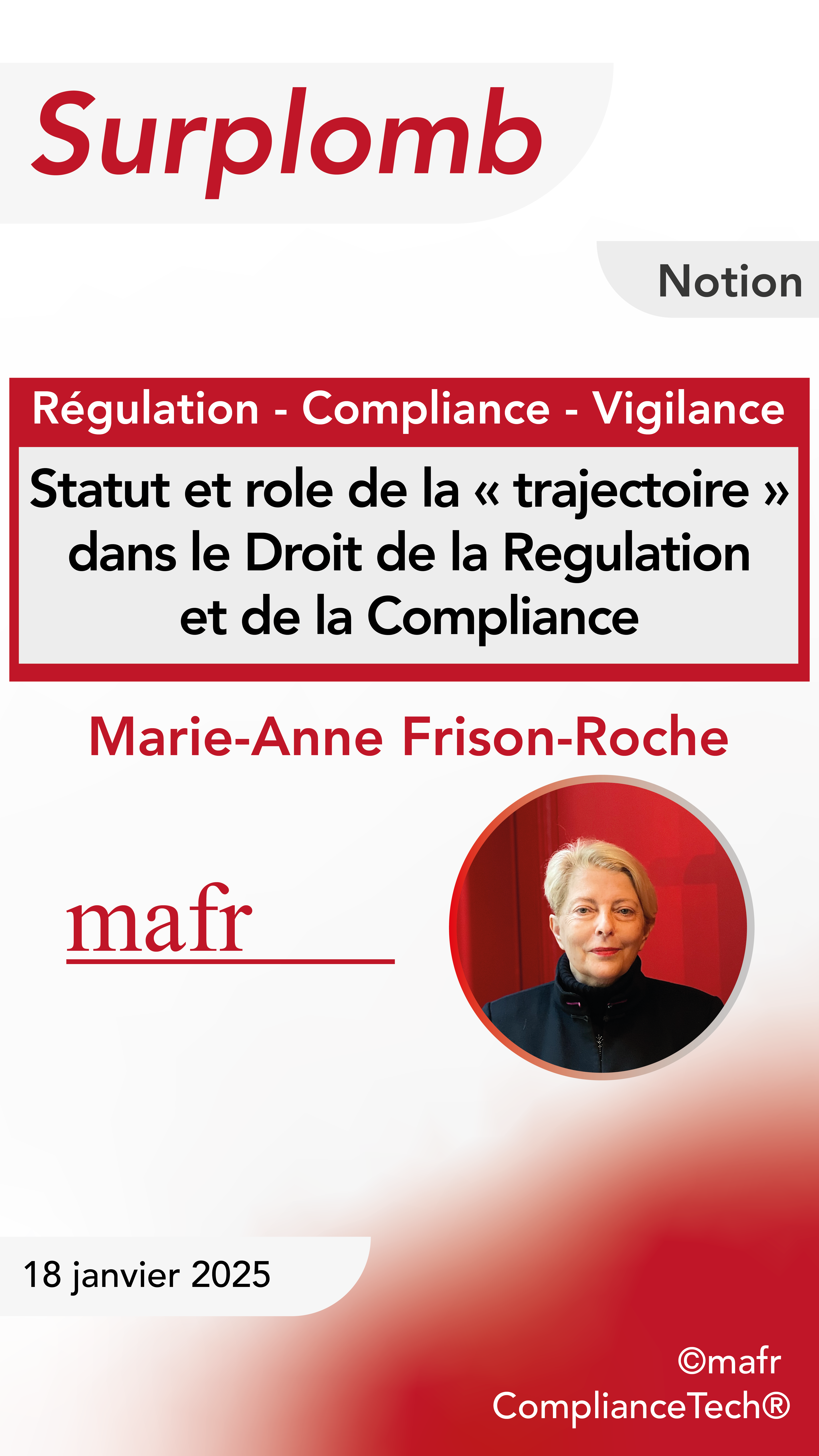


Jan. 18, 2025
Publications

🌐follow Marie-Anne Frison-Roche sur LinkedIn
🌐subscribe to the Newsletter MAFR Regulation, Compliance, Law
🌐subscribe to the Video Newsletter MAFR Surplomb
____
 ► Full Reference: M.-A. Frison-Roche, Status and Role of the 'trajectory' in Regulatory and Compliance Law, Working Paper, January 2025.
► Full Reference: M.-A. Frison-Roche, Status and Role of the 'trajectory' in Regulatory and Compliance Law, Working Paper, January 2025.
____
🎤 This Working Paper was developed as a basis for the Overhang👁 video on 18 January 2024 : click HERE (in French)
____
🎬🎬🎬In the collection of the Overhangs👁 It falls into the Notions category.
►Watch the complete collection of the Overhangs👁 : click HERE
____
► Summary of this Working Paper: The notion of Trajectory is a key concept in Compliance Law. This is shown in 4 steps.
- 1. the decisive use of the trajectory in the 3 Grande-Synthe decisions of the French Conseil d'Etat,
- 2. defining the trajectory,
- 3. the application of the trajectory in various sectoral Compliances and Compliance tools,
- 4. the probationary dimension of the trajectory and the consequences for subjected entities
____
🔓read the developments below⤵️
Jan. 15, 2025
Thesaurus : 02. Cour de cassation

► Référence complète : Com., 15 janvier 2025, n° 23-14.625, Société Générale c/société Dstorage.
____
____
🚧lire le document de travail qui en fait l'analyse
____

Jan. 11, 2025
MAFR TV : MAFR TV - Overhang

🌐suivre Marie-Anne Frison-Roche sur LinkedIn
🌐s'abonner à la Newsletter MAFR. Regulation, Compliance, Law
🌐s'abonner à la Newsletter Surplomb, par MAFR
____
► Référence complète : M.-A. Frison-Roche, " Le puzzle du Droit institutionnel de la Compliance et du Droit substantiel de la Compliance : exemple des règlements et la directive du 31 mai 2024 sur l'AMLA et les obligations de compliance des entreprises ", in série de vidéos Surplomb, 11 janvier 2025
____
► Résumé de ce Surplomb : Le Droit de la Compliance se construit sur 2 jambes, les institutions d'une part, les règles substantielles d'autre part. Aux Etats-Unis comme en Europe. Ainsi le 31 mai 2024 furent adoptés en même temps un Règlement institutionnel pour créer l'Autorité européenne de lutte contre le blanchiment d'argent (AMLA) et un Règlement substantiel modifiant les obligations de compliance des entreprises assujetties pour contribuer à cette lutte. En effet, il faut penser et connaître ensemble institutionnel, procédural (voire procès) et règles substantielles de compliance (gouvernance, contrôle, gouvernance).
N'en connaître qu'un de ces deux aspects, c'est en pratique moins bien manier les techniques de Compliance. Articuler les 2 c'est mieux les maîtriser et les comprendre puisque règles institutionnelles et substantielles se déduisent toutes d'un même "But Monumental" : ici éliminer le blanchiment d'argent des systèmes financier, économique et sociaux. But monumental, mais but simple, qui rend la Compliance facile à comprendre et à manier.
____
🌐visionner sur LinkedIn cette vidéo de la série Surplomb
____
____
🚧lire le document de travail bilingue sous-jacent à cette vidéo
____
🎬visionner ci-dessous ce Surplomb⤵️
____
Surplomb, par mafr
la série de vidéos dédiée à la Régulation, la Compliance et la Vigilance
